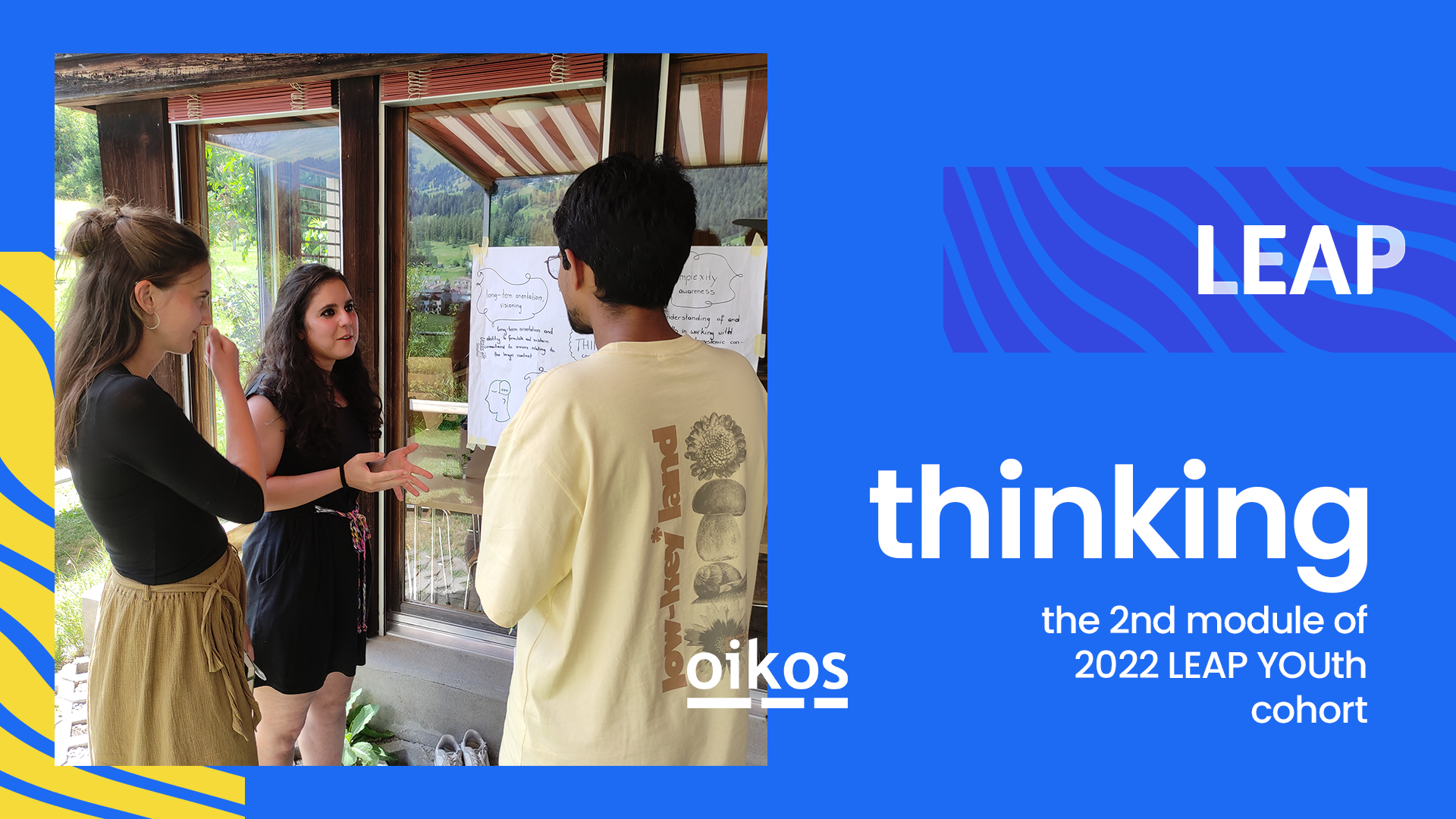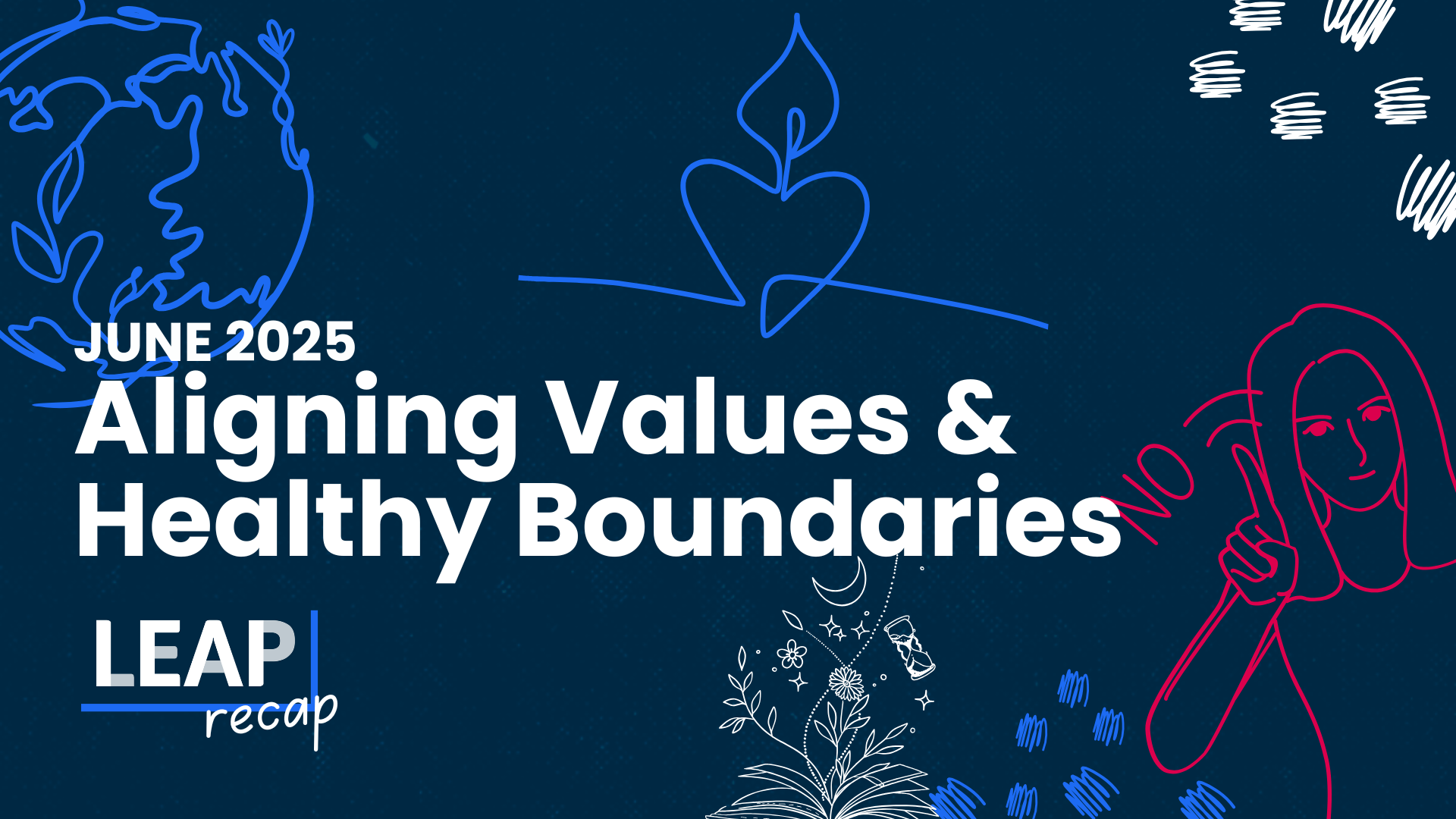
During a 10-months journey, participants at LEAP YOUth experience the Inner Development Goals framework in 5 modules to explore the main dimensions of conscious leadership: Being – Relationship to Self; Thinking – Cognitive Skills; Relating – Caring for others and the world; Collaborating – social skills and Acting – driving change. Besides input webinars and workshops, they are supported by 1-1 coaching sessions, peer groups, are invited to engage in personal reflections and can enjoy 2 main onsite meetings.
Continuing our LEAP journey, from May to June participants went through the THINKING MODULE – Cognitive Skills. In this module they explored the topics of navigating complexity and fostering imagination for the future we want to bring forward.
Over these 2 months they developed cognitive skills learning tools and/or frameworks that support us to make sense of our vuca and interconnected world, at the same time leveraging understanding of different perspectives and developing more robust and critical ways of thinking for wiser decision-making processes.
At the first workshop participants learned about the Cynefin Framework and the Iceberg Model. To fully engage with the tools and practice it, participants had the chance to work through a situation they were facing as a challenging experience. First, they would have to sense-make and be aware of the complexity of their experience, and reflect about the circumstances that were involved, which could be barriers to move forward with solutions.

Afterwards, they would use the 4 domains of reality that the Cynefin Framework introduces – complex, complicated, chaotic and clear – to visualise the challenge at a certain level and then think about how to respond to it accordingly. Participants had to share their processes with others to exchange perspectives and exercise critical thinking.
In a second moment, the Iceberg Model was introduced, supporting deeper insights into the roots of challenges. Both tools helped participants understand on a broader level what could be a clear and positive way to attend the situation they were facing.
For the THINKING input webinar our host Rob Hopkins, cofounder of Transition Town Totnes and Transition Network, introduced the cohort to the idea of long term vision with the power of imagination. Using the concepts of his book “From What Is to What If: unleashing the power of imagination to create the future we want”, he took the participants on a journey, starting from seeing how big changes had happened in the past 10 years and how to rise again the forgotten power of imagination. He introduced the Imagination Sundial, a design tool for how we might set out, intentionally and skilfully, to rebuild the imaginative capacity of people, organisations or nations to bring alive a more connected and integrated future.
At the end of the session, participants were part of a collective imaginative experience, where they were invited to visualise the world they would like to be living in 10 years from now and could share thoughts on how to bring it to practice.
A main message Rob left to the cohort was about the importance of recognizing the type of narratives we select to approach sustainability topics as climate change. He highlighted that pessimistic narratives can lead to apathy, denial, feelings of helplessness or other negative responses in general. As a way to approach differently, Hopkins inspired participants to co-create spaces and places that tells a powerful immersive story to visitors of how the future could be. In this sense, breaking down our internal constraints and societal norms to open up again in ourselves a greater sense of what is possible. Unleashing positive emotions and active hope, so we can collectively respond in a more loving way to what we are living today, paving the path for a positive sustainable and flourishing future.
Some thoughts of participants about this module were:
“Especially, given the current world situation, this module has given me the tools to see this world in a more opportunistic way and give me the tools to see myself as a leader who can balance different uncertainties and turn them into something good through creativity”. – Nea, participant
“Very inspiring and giving a bright vision of the future and the tools to imagine this future together with other people” – Amelie, participant
“The models explained here can be used in breaking down the problems and finding the root causes which will be both helpful in the personal and professional life” – Asha, participant“This module has helped me greatly in acquiring these important skills of thinking for effective leadership. My decision making has really been sharpened by what I learnt in the module”. I am a better resilient leader.- Abdulbaki, participant



